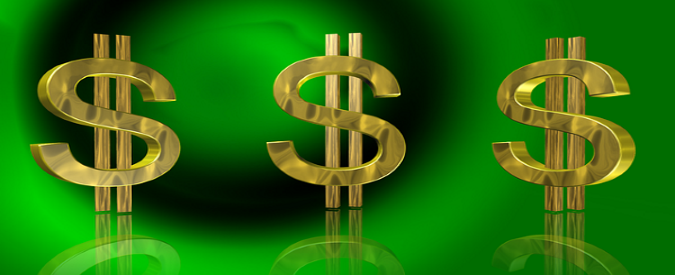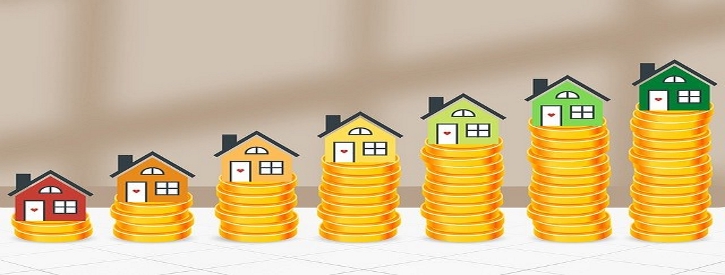Let’s face it, shit happens. There is usually nothing we can do about it. We can only be somewhat prepared. With that in mind, here are 3 reasons why you need an emergency fund.
I am no stranger to bad things happening. Most of you reading this probably aren’t as well.
If a storm is coming, you prepare for it. But sometimes disaster strikes when you least expected it.
However, if you set aside the right provisions, you will lessen the blow and/or get through it altogether.
Sadly, it has been shown that 56% of Americans couldn’t cover a $1,000 emergency expense with their savings.
It is important that you have money set aside for emergencies.
Real emergencies, not “I forgot our anniversary and need to run out a buy a gift”. Rather actual emergencies such as listed below.
Real emergencies include; medical or dental problems, loss of employment, loss of a family member, automobile troubles, and unexpected home repairs.
These things happen and if you are caught without an emergency fund you may find yourself in a world of trouble.
Here are 3 reasons why you need an emergency fund!
1) Job Loss

Unless you are really wealth and/or already have multiple streams of income coming in, your job is likely your main source of income.
But what happens when your job disappears?
We only need to look at recent events such as the Great Recession and the Covid-19 pandemic to see tens of millions of jobs literally vanish leaving their workers unemployed.
How would you provide for yourself and/or family should you lose your job? How would you pay the rent or mortgage? What about any medical issues?
Do you think your employer cares? They don’t. You have to care!
It is strongly advised by many that you have 3-6 months of money in your savings account to cover all expenses in the event of job loss.
Start by calculating your basic monthly expenses and use that number to build an emergency fund.
2) Medical Expenses

Unfortunately, we mortals a subject to illness, broken bones, accidents, and the effects of aging.
Emergency medical expenses happen even when you are super healthy.
I had an unexpected medical emergency earlier this year and end up in the hospital twice. Lucky, my insurance covered most of the cost. The rest I took out of my emergency fund.
It is good to set money assign for medical (and dental) issues that your insurance may not cover. Not just for you, but also for your family.
If your health insurance is tied to your employer, what would happen if you lost your job?
Some even suggest a sub-emergency fund just for potential medical expenses.
That is not a bad idea. However, to keep it simple, I would just say factor it in with your normal emergency fund.
3) Home and/or Auto Repair

If you own a home or automobile, you will inevitably run into repair problems.
While they may not all be emergencies, they can become costly.
Sometimes the air-conditioner goes on the fritz, television screen breaks, a microwave catches fire, or computer problems.
There are still worse problems, such as a pipe breaking, a house fire, or maybe a tree falls on your roof.
The average new American homeowner spend about $2,700 on repairs in the first 5 years of home ownership. The point is: things do break.
These things happen. Maybe you run over a glass bottle and shred the tires on your automobile. Or you brake pad needs replacing.
All these things cost money.
I experienced quite a few home expenses over the year. My refrigerator broke, my laptop went haywire, and my air-conditioner was worn out.
Thankfully, I built up a sizable emergency fund and all those costs were just brushed off like nothing.
Conclusion : Don’t Wait, Be Prepared

And there are 3 reasons why you need an emergency fund.
Many people tend to put off saving for a potential emergency or an unexpected financial shock. But these do happen, and will happen at some point – 100% guaranteed!
That is the way life works and we can’t control when these things happen. However, we can minimize the damage and significantly alter the fallout for the better.
Often the solution most people adhere to is to put these expenses on credit cards and take out loans. This of course, sends you into the red and often leaves you in debt with more to pay it off each month.
The emergency fund’s purpose is to cover these unexpected expenses.
If you want even further financial security, start building multiple streams of income outside your job.
Go Much Further Towards Financial Security

Work towards building passive income so you can make money while you sleep.
Right now, I have an emergency fund in a savings account that currently has over $8,000 in it.
But I’ve also built a six-figure portfolio that generates a yearly average of over $1,000 per month in dividend income!
That is passive income that I earn while I sleep!
If you are interested in beginning your own journey into dividend growth investing, personal finance, and financial freedom, check out my Getting Started page.
Also, don’t forget to Subscribe for more great content and updates! 🙂
So, how about you guys? Do you have an emergency fund set up? Are you setting up one now? Let me know in the comments below!
Like this:
Like Loading...



